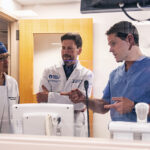Coming to Boston Children’s during COVID-19: Keith’s story
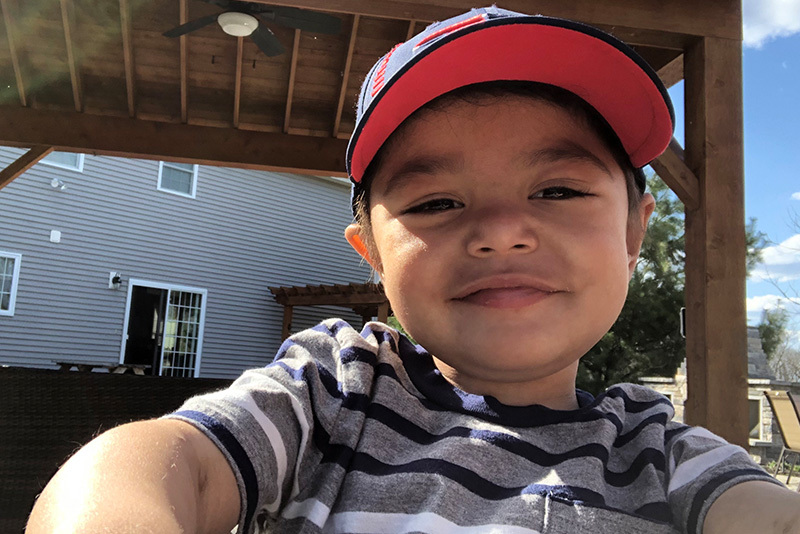
At just 4 years old, Keith Bennett has spent more time in the hospital than most kids ever will. Diagnosed with a chronic kidney disease called nephrotic syndrome, he visits Boston Children’s Hospital several times a week — and has continued to do so throughout the COVID-19 pandemic. Now, as Boston Children’s begins to move forward, Keith’s parents, Jackey and Tony want other families to know that visiting the hospital right now isn’t scary. In fact, it’s one of the safest public places you could be.
A diagnosis of nephrotic syndrome
One day three weeks shy of his third birthday, Keith woke up with swollen eyes — a symptom his parents initially attributed to seasonal allergies. But when the rest of his body eventually started to swell, they brought him to his pediatrician and then their local emergency department. There, he was diagnosed with what their Internet searches had already led them to suspect: nephrotic syndrome. This collection of kidney-related findings includes high levels of protein in the urine, low levels of protein in the blood, and edema (swelling). Its more aggressive form, known as focal sclerosis (FSGS), can lead to kidney damage. There is no cure for nephrotic syndrome, but many patients respond to various immunosuppressant treatments.
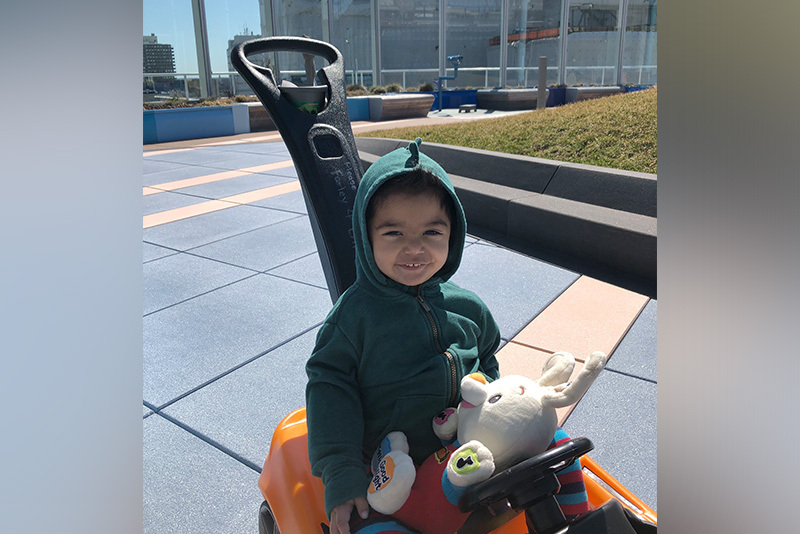
A series of challenges
For Keith’s parents, the diagnosis was “devastating — we didn’t know what the future would hold,” says Jackey. “Our world changed really fast.”
The initial treatment was daily prednisone, a steroid that initially got Keith into remission but carried its own unpleasant side effects, such as mood changes and increased appetite. The next year held more challenges, including Keith becoming steroid dependent, then resistant, and requiring more potent medication. As a result, his course of treatment became increasingly difficult and led to a bout of E. coli poisoning, a relapse that required frequent hospitalization and a kidney biopsy. Although his biopsy showed minimal change disease and not FSGS, “he’s had a really difficult time,” says his mom.
The experience has been made easier by Keith’s care team, led by Dr. Michael J.G. Somers, director of clinical services in Boston Children’s Division of Nephrology. “The renal team at BCH and nurses in the CATCR and inpatient units have been a big part of our lives these past several months and we appreciate all of their dedication to helping and healing Keith,” says Jackey.
Genetic testing results were inconclusive for Keith in terms of kidney disease and more in-depth testing is in progress. Genetics did, however, uncover a second rare disease diagnosis for Keith, explaining his developmental delays: a duplication of his 15th chromosome (Dup15q). Dr. Jonathan Picker in the hospital’s Division of Genetics and Genomics, is helping the family in their search for more conclusive findings.
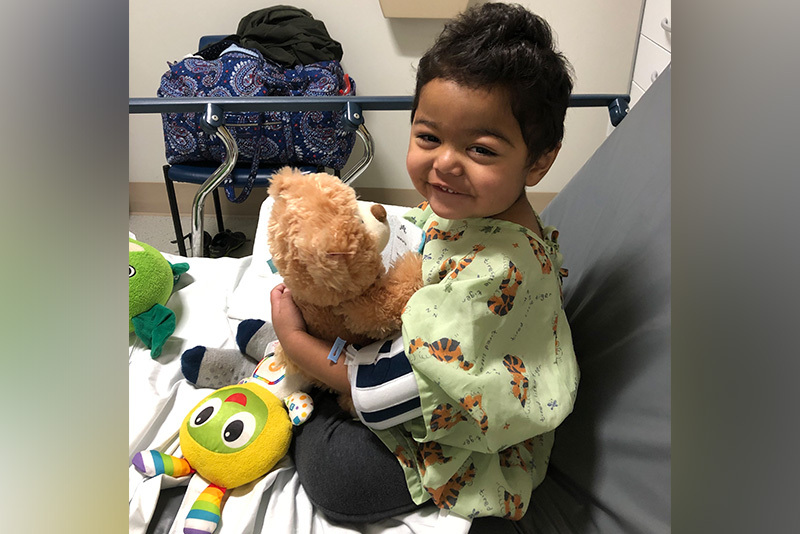
Treatment during a pandemic
Because Keith’s treatment includes regular infusions of albumin — a form of protein — and diuretic drugs, he travels to Boston Children’s from his home in Southern New Hampshire multiple times a week. Those visits have continued during the COVID-19 pandemic, although his parents were initially concerned about the safety of doing so.
With Keith on immunosuppressant medication, the Bennetts had already been practicing good hand hygiene and other safety precautions. But as nonessential services began shutting down in March, Jackey felt nervous. “As the parent of a medically vulnerable child, our first few visits during the pandemic were nerve wracking,” she admits. “There were so many unknowns about the virus.”
But as she noticed the changes being implemented — including symptom screening, a universal mask policy, Plexiglass dividers around reception desks, and floor decals to guide social distancing — she started to relax. “We could tell that Boston Children’s is doing everything they can to keep us safe,” she says.
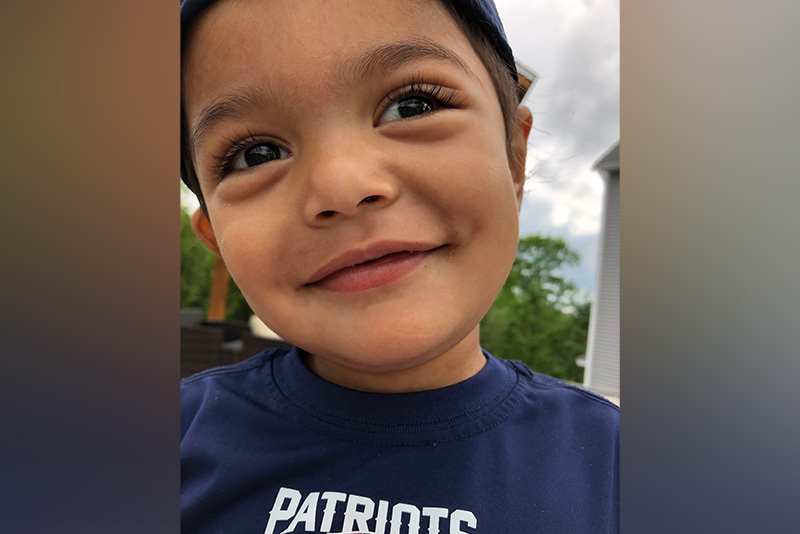
Staying safe at Boston Children’s
Keith’s parents credit his resilience to his ability to adapt, first to life with nephrotic syndrome and now to the “new normal” of life during COVID-19 — all while still just being a kid. “Changes in routine can be especially hard for neuro-divergent kids, but he’s impressed us immensely with his strength and perseverance,” says Jackey, who has helped Keith get acclimated to wearing masks by easing his fears and making it fun; “Keith amazes us every day.”
And she hopes their experience coming to Boston Children’s will help ease other families’ concerns, too. “We know if we wear masks and wash our hands frequently, we’re doing our part to help keep ourselves and others safe,” she explains. “Even with all of the anxiety around COVID-19, it’s clear that everyone at the hospital is helping protect us.”
Get more answers about Boston Children’s response to COVID-19.
Related Posts :
-

Changing lives through genetics: The Children’s Rare Disease Collaborative
A 14-year-old girl was having back pain after a car accident and visited an orthopedic clinic at Boston Children’s ...
-

Model enables study of age-specific responses to COVID mRNA vaccines in a dish
mRNA vaccines clearly saved lives during the COVID-19 pandemic, but several studies suggest that older people had a somewhat reduced ...
-

Mutations during prenatal development may contribute to schizophrenia
Schizophrenia is known to have a genetic component, and variants in 10 genes have been identified as markedly increasing schizophrenia risk. ...
-

Breaking new ground in cerebral cavernous malformation research
Children with cavernous malformations face unique treatment challenges due to factors such as the malformation’s location, size, risk of ...





